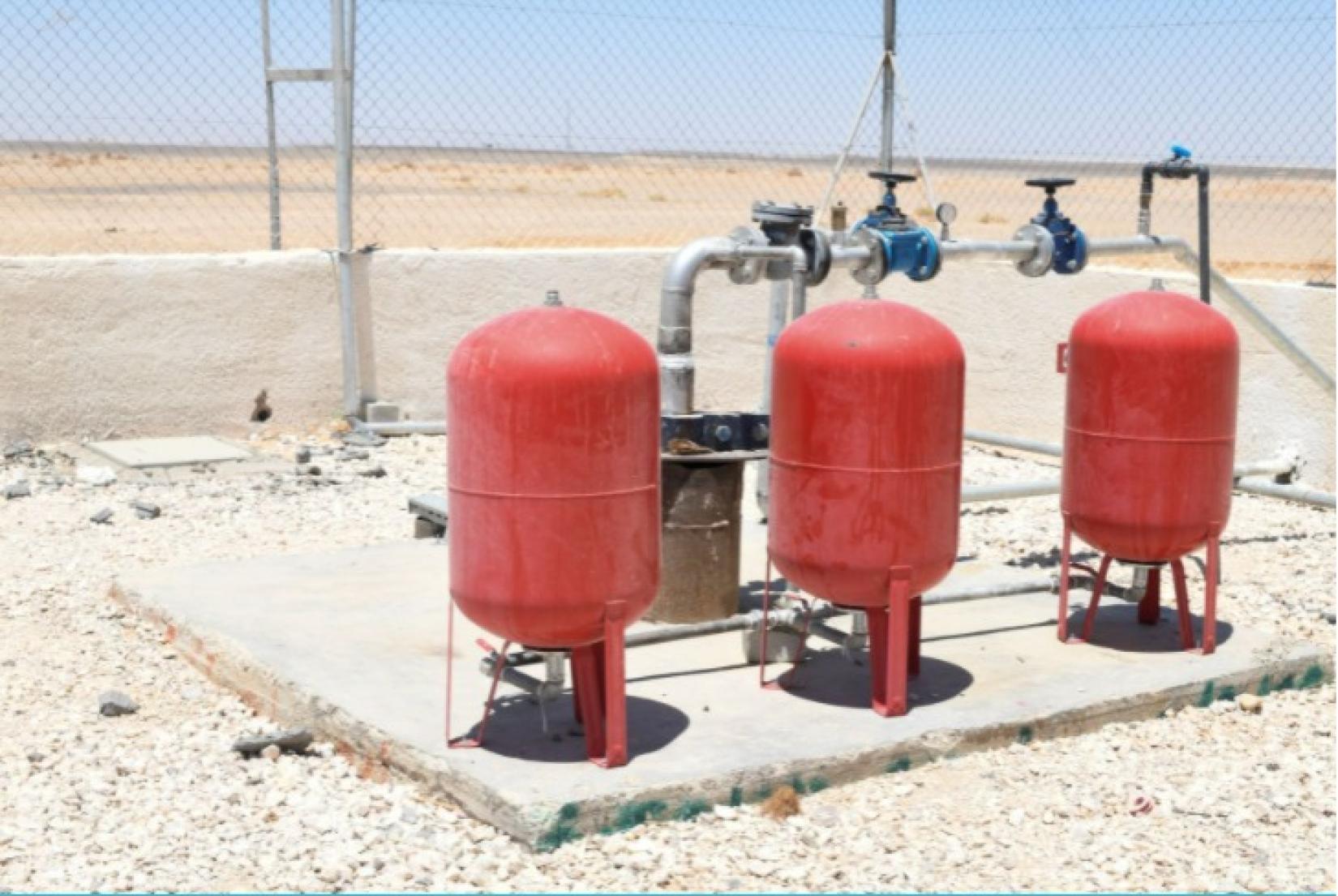UN: Recycled wastewater provides a window for Jordan to address water scarcity
22 March 2022

As climate heats up, affecting Jordan’s already exhausted water resources, expanding wastewater treatment provides one opportunity to increase water availability for irrigation that consumes about one half of the country’s total water supply, the United Nations said on Monday.
Jordan is the second most water scarce country in the world, with its annual renewable water resources are less than 100m3 per person, significantly below the global threshold of severe water scarcity of 500m3 per person.
Climate change, among other challenges- population growth-, is projected to stress Jordan’s limited water resources, negatively impacting the county’s agriculture, with the rural poor and the rural poor women and girls the most likely to bear the brunt of these impacts.
In a policy brief titled “Decentralized Wastewater Treatment Systems (DWATS) as a Climate Change Adaptation Option for Agriculture in Jordan”, the UN said, in its Nationally Determined Contribution (NDC) Jordan has put forward the use of non-conventional water resources as an adaptation option, with the expansion of decentralized wastewater treatment as one of the country’s goals in its 2008-2022 Water Strategy.
Jordan already operates 34 wastewater treatment plants that provide 14% of total water supply, and treated wastewater reused in agriculture accounted for about 25% of the total amount of water used for irrigation.
However, despite tackling this non-conventional water resource in Jordan’s policies, there are several challenges that hinder the full achievement of this goal.
These challenges include the weak coordination between several government institutions with overlying responsibilities, as well as the lack of institutional and staff capacity. Moreover, the price of treated wastewater for irrigation is set administratively and may not reflect true cost of operation, while the DWATS in small Jordanian communities is disadvantaged as an option by scattered populations, small size, inability to afford DWATS tariffs, and the lack of social acceptance for wastewater reuse.
To ensure successful expansion of decentralized wastewater treatment systems in Jordan, the UN recommends:
- Continue to include DWATS as a technology option in national adaptation and water policy reviews and reforms.
- Explore various ownership models for DWATS facilities, including a mix of public and private.
- Investigate and trial de-risking of DWATS investments through various finance options involving local and international entities.
- Review standards for treated wastewater to ensure adequate levels quality of DWATS water supply.
The brief launched today is the third of a series of policy briefs that aim to inform decision making and ensure synergy with other national and international frameworks. The release of the policy brief coincides with the World Water Day (WWD) annually observed on 22 March.
This year’s WWD is observed under the theme Groundwater: making the invisible visible.
In a message released on this occasion, the UN Secretary General Antonio Guterres said humanity’s demand for water is growing. “Pressure on water resources is increasing due to overuse, pollution, and climate change. Droughts and heatwaves are becoming more intense and more frequent. Sea-level rise is driving salt-water intrusion into coastal aquifers. Groundwater aquifers are being depleted”.
He added that some 20 per cent of the world’s aquifers are being overexploited. “In many places, we simply do not know how much of this precious resource might exist. We need to improve our exploration, monitoring and analysis of groundwater resources to protect and better manage them and help achieve the Sustainable Development Goals”.
To galvanize action on water for sustainable development, the United Nations will host a Water Conference next year. Formally known as the 2023 Conference for the Midterm Comprehensive Review of Implementation of the UN Decade for Action on Water and Sanitation (2018-2028) – the event will take place at UN Headquarters in New York, 22-24 March 2023, co-hosted by Tajikistan and the Netherlands.
The Conference shall be preceded by regional and global preparatory meetings, as appropriate, and informed by existing water-related meetings at the regional and global level.

